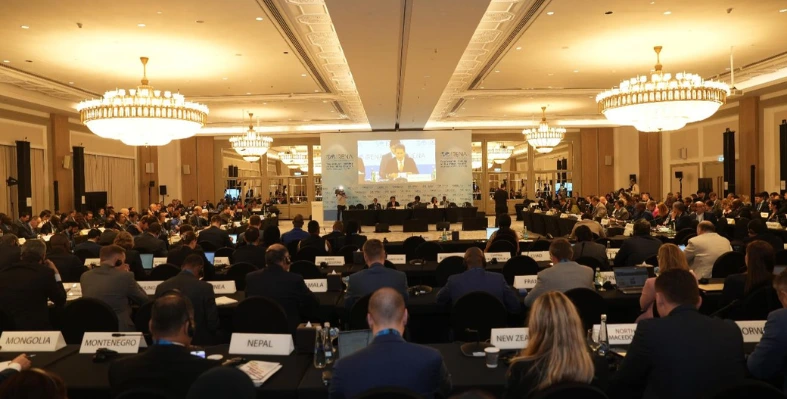Guided by the directives of HH Sheikh Mohammed bin Rashid Al Maktoum, Vice President and Prime Minister of the UAE and Ruler of Dubai, and held under the patronage of HH Sheikh Ahmed bin Saeed Al Maktoum, Chairman of the Dubai Supreme Council of Energy, Dubai Electricity and Water Authority (DEWA) will stage the 27th edition of the Water, Energy, Technology and Environment Exhibition (WETEX) from 30 September to 2 October 2025 at Dubai World Trade Centre.
WETEX has become a landmark event that underscores the UAE’s leadership in advancing renewable energy, clean technologies and sustainability. It contributes directly to Dubai’s long-term vision of fostering a diversified and future-ready economy. The exhibition will span multiple areas, from water and energy to green mobility, smart cities, artificial intelligence and digital transformation.
“WETEX reflects the UAE's unwavering commitment to sustainability and strengthens Dubai's position as a leading global green economy hub. The exhibition has established itself as one of the world's leading specialised events, providing a platform to showcase the latest innovations in clean energy, water and sustainability. It also supports building partnerships that contribute to achieving global climate goals and accelerating the transition to a green economy. WETEX annually brings together industry leaders, investors, innovators and government officials from around the world to share knowledge, explore opportunities and collaborate in building a more sustainable and resilient future,” said HE Saeed Mohammed Al Tayer, MD & CEO of DEWA and Founder and Chairman of WETEX.
The event is recognised as a hub for collaboration between public and private sector organisations, providing opportunities to forge new partnerships, accelerate the energy transition and support global climate action. It also acts as a gateway for international businesses looking to expand into emerging green markets and attract investment.
Since its launch, WETEX has grown into one of the world’s most prominent sustainability-focused gatherings. The 2024 edition drew more than 50,000 visitors, 2,800 exhibitors from 65 nations, and 21 international pavilions.
Building on that success, WETEX 2025 aims to further strengthen cross-border collaboration, promote innovation, and encourage investment that drives a sustainable global future.










